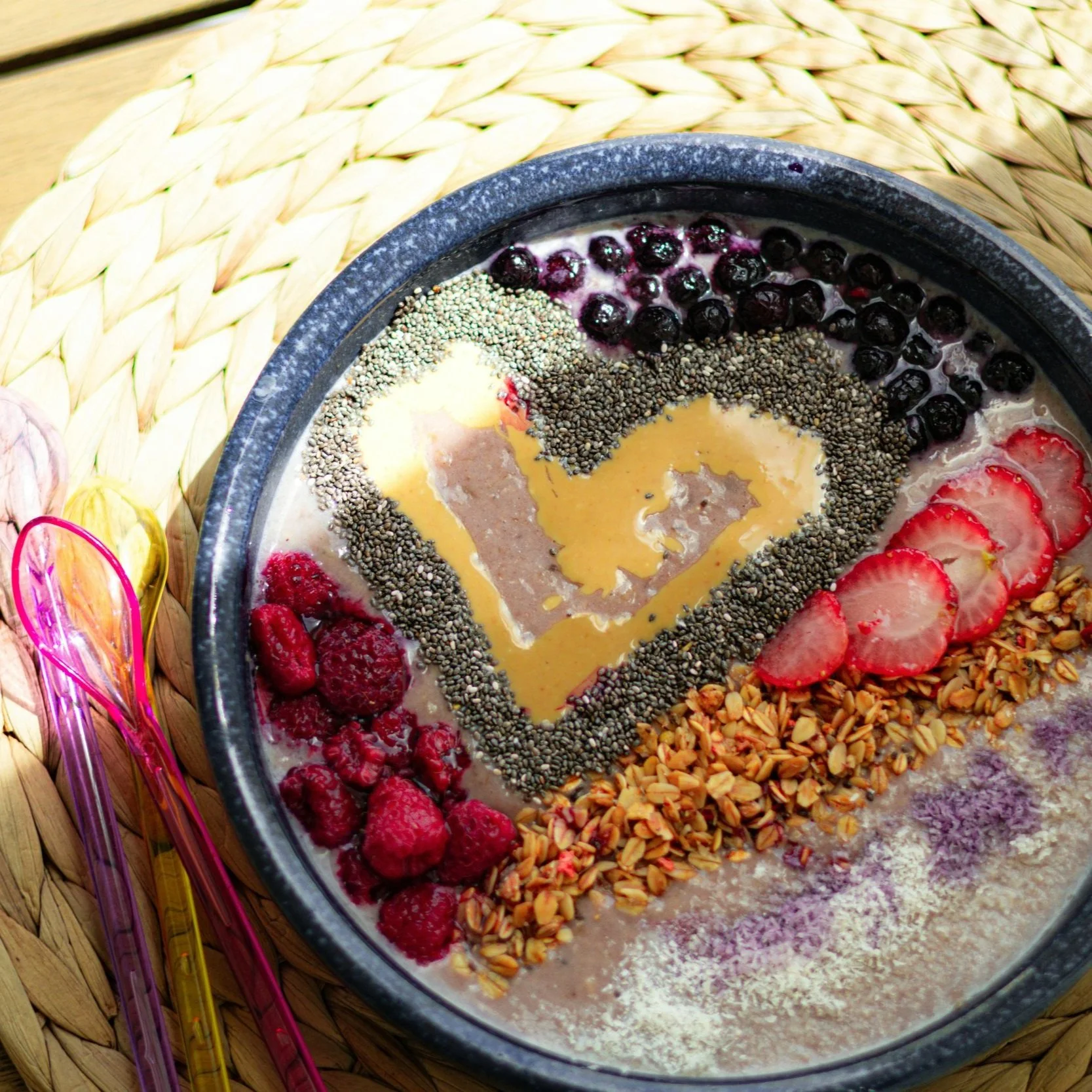What Is Orthorexia? When “Healthy Eating” Becomes an Obsession
A few years ago, I just wanted to be healthy. I’d had my daughter and was ready to “get back in shape” - but I didn’t want to go on a diet. I’d been there before and knew how unsustainable it was.
So I turned to what felt like a healthier option: wellness.
I started eating more whole foods, cooking from scratch, and cutting back on sugar. It felt like a positive change. I wasn’t focused on weight loss (or at least, I told myself I wasn’t). I thought I was doing something good for my health.
But gradually, those gentle changes turned into rigid rules. First it was sugar. Then gluten, then dairy, then soy. I was inching toward veganism. I started reading food labels obsessively and felt anxious about eating something “off plan.” If I did, I’d promise myself I’d be “better tomorrow.”
What started as self-care turned into perfectionism and control.
At the time, I didn’t realise what was happening. People praised me for being disciplined. I thought I was being healthy. But in reality, I had developed a deeply disordered relationship with food.
So what is orthorexia?
Orthorexia is an unhealthy obsession with eating in a way that’s perceived as “clean,” “pure,” or “healthy.” It often begins with good intentions - a desire to nourish your body, feel better, or improve your health - but spirals into fear, control, and rigid thinking.
Unlike other eating disorders, orthorexia isn’t primarily about weight loss. It’s about feeling morally “good” or “bad” depending on what you eat. And while it’s not officially recognised as an eating disorder (yet), many healthcare professionals believe it should be.
Some signs of orthorexia might include:
Cutting out food groups without a medical reason
Feeling anxious or guilty after eating “imperfect” foods
Spending excessive time thinking about food, ingredients, or labels
Avoiding social situations because of food fears
Judging yourself or others based on how “clean” their diet is
Orthorexia often hides in plain sight. It can look like dedication or commitment. But underneath, it’s exhausting, stressful, and isolating.
My orthorexia looked like this...
At first, I was just making healthy swaps. More vegetables, fewer processed snacks. I followed wellness influencers who promoted “real food” and warned against sugar, gluten, and dairy. I thought I was doing the right thing.
But over time, I started cutting out more and more foods. I spent hours planning meals and reading ingredient labels. I skipped social events or arrived late to avoid eating. I even claimed allergies at restaurants so I could stay within my strict rules.
I didn’t realise I was in trouble because the world around me praised it. People said I was so healthy, so dedicated, so in control. But I wasn’t. I was anxious, isolated, and constantly thinking about food.
But isn’t healthy eating… healthy?
Of course, nutrition matters. But when your relationship with food becomes rigid and stressful - when it starts to dominate your thoughts and limit your life - it’s not healthy anymore.
That’s what I learned the hard way.
I wasn’t nourishing myself. I was micromanaging my food. I felt guilt, shame, and anxiety over the tiniest deviations. I judged myself constantly. I missed out on connection, spontaneity, and joy.
True health isn’t about perfection. It’s about flexibility, balance, and ease. It’s about being able to eat a meal without stress, join a social event without panic, and choose food that supports both your body and your life.
What helped me heal
Recovery didn’t happen overnight, but I’m now in a place where I eat with ease, trust my body, and enjoy food again. These are some of the biggest lessons I learned along the way:
1. Restriction fuels obsession
The more I cut out, the more I craved. The answer wasn’t more control—it was less.
2. Stress is worse than sugar
I spent so long fearing sugar. But I now believe the constant stress I put myself under did far more harm than any cookie ever could.
3. All foods fit
I still enjoy nourishing food, but I’ve stopped putting it on a pedestal. Cake and pizza have a place on my plate too.
4. Health isn’t just about food
True wellness includes sleep, connection, movement, joy, and mental rest. Focusing only on food is missing the bigger picture.
5. My kids were watching
They noticed the label-checking, the restrictions, the separate meals. That realisation gave me a big push to break free.
6. You don’t need to earn your food
You can eat simply because you’re hungry. Full stop.
7. Flexibility matters most
I can eat out, travel, or enjoy a spontaneous treat without spiralling. That’s real freedom -and real health.
If you’re wondering whether your “healthy eating” has gone too far...
That wondering alone is worth listening to. Orthorexia doesn’t always come with anything dramatic. It often starts with praise, good intentions, and small changes. But if food is causing you stress, shame, or fear - it’s okay to take a step back and ask why.
Ready to talk? If you’d like to explore your relationship with food, I offer free 1:1 discovery calls. It’s a chance to talk in a safe, judgement-free space and explore what recovery could look like for you. Book your call here.
Or if you have any questions, just drop me a note using the form below and I’ll answer with some tips and strategies you can use straight away.

